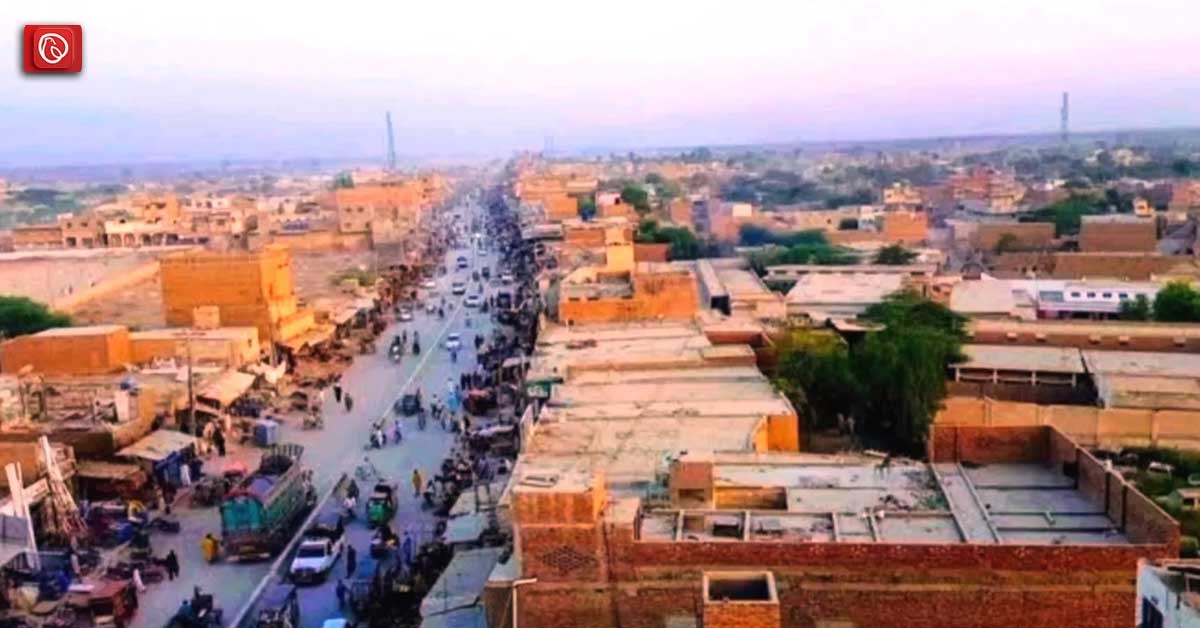
Nasirabad is a district located in Balochistan, Pakistan. It is known for its agricultural activities, particularly the cultivation of fruits and vegetables. The district is also rich in natural resources, including coal and natural gas. Nasirabad is home to several historical sites and landmarks, reflecting its ancient heritage. The town of Dera Murad Jamali serves as the administrative centre of the Nasirabad district. It is accessible by road and is located approximately 400 kilometres southeast of Quetta, the provincial capital of Balochistan.
Graana.com has prepared an area guide to Nasirabad, including its history, culture, attractions and landmarks, industry and economy, and more.
The history of Nasirabad is extensive and intriguing and goes back many centuries. The city was established in the eighteenth century by the Baloch chief Nasir Khan. The region was renamed Nasirabad in honour of its founder, Dera Murad Jamali. Given its advantageous location close to the Bolan Pass, a crucial trade route through the Himalayas, Nasirabad swiftly emerged as a major hub for regional trade and business.
Nasirabad has participated in a number of noteworthy occasions over the years. In the 19th century, during the First Anglo-Afghan War, the city saw fighting between Afghan and British forces. In the middle of the 20th Century, Nasirabad served as a significant base for both the British Indian Army and the Pakistan Army. The city now serves as a major hub for logistics and transportation, bridging Balochistan with the rest of the nation.
The population of Nasirabad is diversified, consisting of people from different languages and ethnic backgrounds. Balochi people comprise the city’s population, followed by Pashtuns, Sindhis, and Punjabis. Locals are renowned for their friendliness and cultural practices, such as the Balochi habit of showing respect by giving visitors tea.
Islam is the prevalent religion of Nasirabad, and religion plays a significant role in the local way of life. Other faiths observed in the city are Christianity and Hinduism. The city’s architecture exhibits the religious impact of the mosques and shrines that dot the landscape.
There are many landmarks and tourist attractions here. The city has several historical and archaeological sites, including the Neolithic-era Mehrgarh remains. Other noteworthy sites are the Jinnah Garden, a public park named for Pakistan’s founder, and the Mirwah Canal, which was constructed in the 19th century to water the nearby farms.
It offers a number of movie theatres, retail malls, and dining establishments for those seeking contemporary entertainment. Natural monuments like the Bolan Pass, which provides breathtaking views of the mountains and valleys, are situated all around the city.
Transportation, mining, and agriculture are the three main industries that propel Nasirabad’s economy. The city is well-known for producing cotton, rice, and wheat in addition to extracting coal and natural gas. Because of its advantageous location on the National Highway and Pakistan Railways line, the city also employs a sizable number of people in the transportation sector.
Furthermore, despite its numerous advantages, the economy of this place is faced with various obstacles, including inadequate infrastructure and investment. The ongoing fighting in Balochistan has also impacted the city, resulting in a decrease in business activity.
The local administration provides public services and infrastructure and directs Nasirabad’s urban planning and development. The city is divided into business and residential areas, with the major business sector situated next to the train station.
In the future, Nasirabad intends to build a new airport and renovate its current infrastructure, which includes roadways and water delivery systems. The city also intends to grow its travel and tourist sector, emphasizing adventure and eco-tourism.
As we have seen, Nasirabad is a city with a plethora of tourist attractions, a rich history, and a diversified culture. Moreover, the city is positioned for growth and development, with plans in place to enhance its public services and tourism business, although encountering certain infrastructure and economic hurdles. Lastly, Nasirabad is a lesser-known metropolitan hub in Pakistan that is worth exploring.
Following are the most common questions and their answers for Nasirabad, Balochistan.
It is famous for its agricultural activities, particularly the cultivation of fruits and vegetables, and its rich natural resources including coal and natural gas.
Nasirabad is accessible by road, with Dera Murad Jamali serving as the main entry point. It is approximately 400 kilometres southeast of Quetta, the provincial capital of Balochistan.
Tourist attractions in Nasirabad include historical sites like the Mehrgarh archaeological site, as well as natural landmarks such as the Bolan Pass and Hanna Lake.
Yes, the place offers various lodging options including hotels, guesthouses, and rest houses catering to different budgets and preferences.
Outdoor enthusiasts can indulge in activities such as hiking, camping, and exploring the rugged landscapes surrounding Nasirabad.
It is generally safe for tourists, it’s always advisable to exercise caution and be aware of local customs and safety measures.
The place experiences a hot desert climate, with extremely hot summers and mild winters. Temperatures can soar during the summer months, so it’s best to visit during the cooler winter season.
This ditrict hosts various cultural festivals and events throughout the year, celebrating its rich cultural heritage and traditions.
Yes, Nasirabad’s local markets offer a variety of handicrafts and souvenirs, including traditional Balochi embroidery, pottery, and rugs.
Yes, guided tours are available in Nasirabad, providing visitors with insights into the district’s history, culture, and attractions.
For more information, visit Graana Blog.
ISLAMABAD: The federal government is set to inaugurate the Islamabad Information Technology Park on August…
Lahore, April 23, 2025 – The city of Lahore has successfully completed the construction of…
ISLAMABAD, Pakistan – April 23, 2025 – Chaaye Khana, Pakistan's popular cafe renowned for its…
ISLAMABAD: Prime Minister Shehbaz Sharif laid the foundation stone for the Murree Road underpass on…
DUBAI: Pakistani real estate developers and representatives showcased a range of commercial and residential investment…
ISLAMABAD: Capital Development Authority (CDA) is currently undertaking a major Rs652 million project to upgrade…